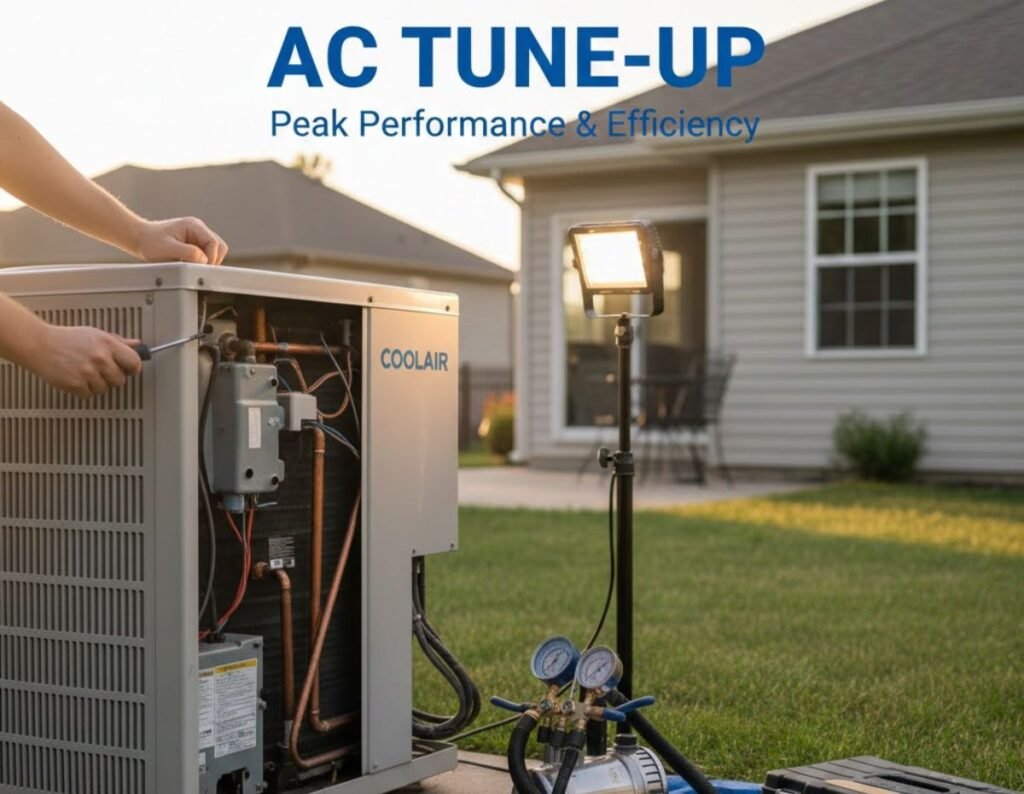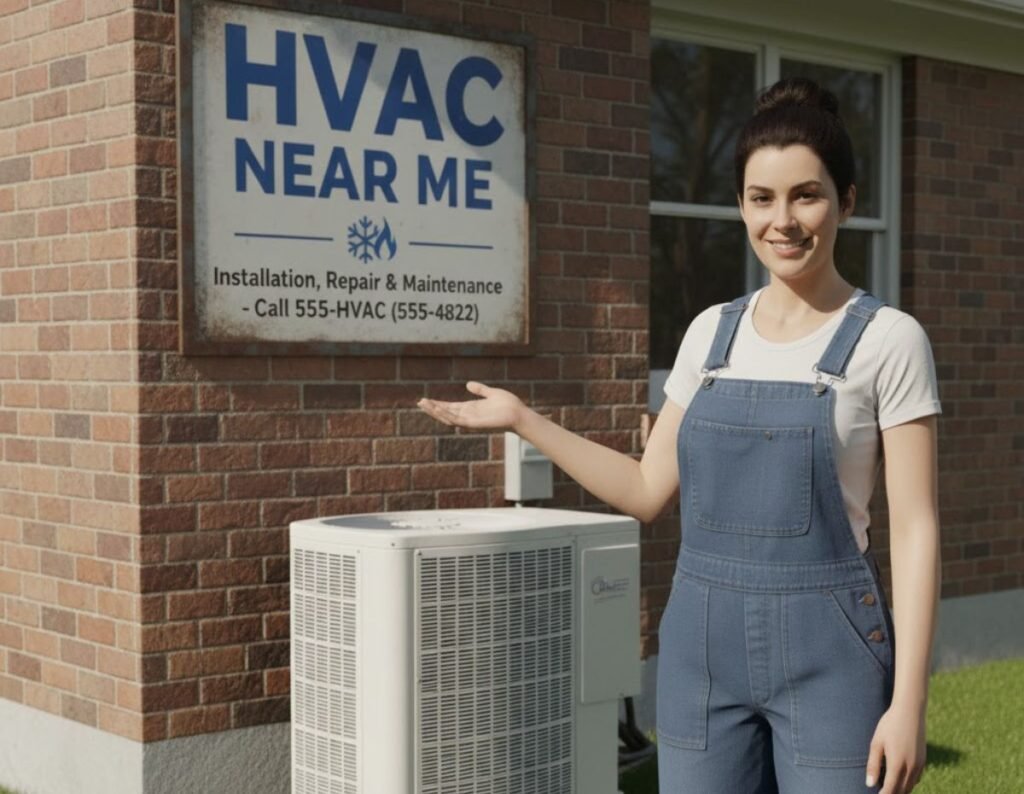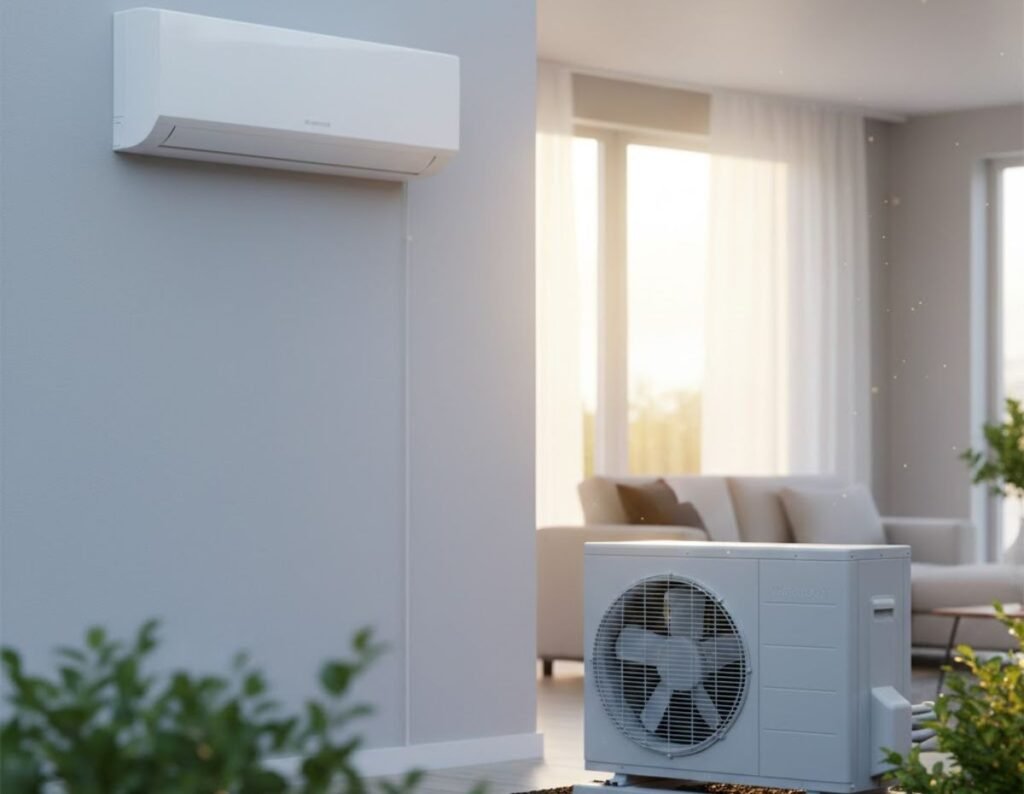A reliable air conditioner is essential when temperatures rise, but many homeowners forget that their AC needs regular maintenance to stay efficient and problem-free. An AC tune-up is one of the simplest and most cost-effective ways to keep your cooling system running smoothly all summer long. Whether you own a central AC, a heat pump, or a ductless mini-split, a tune-up keeps your system clean, efficient, and ready to handle the hottest days of the year.

What Is an AC Tune-Up?
An AC tune-up is a routine maintenance service performed by a licensed HVAC technician. Think of it like a yearly check-up for your air conditioner. The technician inspects important components, cleans the system, checks safety controls, tests performance, and ensures everything is working the way it should. This service is designed to catch small issues early before they turn into expensive repairs or unexpected breakdowns during summer.
Why Regular AC Maintenance Matters
Many homeowners assume their AC is fine as long as it’s blowing cool air—but that’s not always true. Systems accumulate dust, debris, and wear over time. Without maintenance, they lose efficiency, use more electricity, and risk component failure. Regular AC tune-ups reduce breakdowns, improve airflow, and boost cooling performance. They also help homeowners save money on energy bills, which is especially helpful during peak cooling months.
Signs Your AC Needs a Tune-Up
If you notice any of these symptoms, your AC is overdue for a tune-up:
- Weak airflow
- Warm or inconsistent air
- Increased energy bills
- Strange noises or odors
- Moisture or leaks around the unit
- AC frequently cycles on and off
- Poor humidity control
These warning signs often indicate dirty coils, clogged filters, loose parts, or low refrigerant—all issues a tune-up can fix quickly.
What Happens During a Professional AC Tune-Up?
A thorough tune-up involves multiple steps aimed at restoring full system performance.
Inspection
The technician checks electrical connections, refrigerant levels, thermostat accuracy, safety controls, ductwork, and overall system condition.
Cleaning
Dirty components reduce efficiency, so the tech cleans the evaporator coil, condenser coil, blower assembly, and condensate drain. Clean components improve airflow and cooling power.
Testing
Finally, the technician tests the system’s amperage, temperature output, airflow, and refrigerant pressures, ensuring everything is working as designed.
READ MORE: HVAC Near Me
Benefits of Getting an AC Tune-Up
A tune-up offers a wide range of benefits, including:
- Lower energy bills thanks to improved efficiency
- Better cooling performance in every room
- Longer lifespan for your air conditioner
- Fewer breakdowns during peak summer
- Improved indoor air quality
- Safer operation with clean electrical components
- Reduced repair costs over time
For many homeowners, these benefits easily outweigh the cost of annual maintenance.
How Often Should You Schedule a Tune-Up?
Most HVAC professionals recommend scheduling a tune-up once a year, ideally in spring before heavy summer use. Heat pumps used year-round may benefit from two tune-ups: one in spring and one in fall. Sticking to a regular schedule ensures your system stays efficient and dependable.
DIY AC Maintenance Tips for Homeowners
While professional tune-ups are essential, homeowners can do a few simple tasks themselves:
- Replace or clean air filters every 1–3 months
- Keep the outdoor condenser free of leaves and debris
- Ensure vents and registers aren’t blocked
- Clean the area around the indoor unit
- Check your thermostat batteries
- Inspect insulation around refrigerant lines
These basic habits help your AC stay clean between professional visits.
Common Issues Found During Tune-Ups
Technicians often discover problems like:
- Dirty coils and clogged filters
- Low refrigerant levels
- Loose electrical connections
- Blocked condensate drains
- Failing capacitors
- Worn fan belts
Catching these issues early prevents breakdowns and keeps your AC performing at its best.
AC Tune-Up vs. AC Repair
A tune-up is preventive maintenance, while a repair is required when something breaks or stops working. Tune-ups reduce the likelihood of repairs. Repairs fix specific problems, such as refrigerant leaks or fan motor failures. Keeping up with maintenance often means fewer expensive repairs down the road.
How Much Does an AC Tune-Up Cost?
On average, an AC tune-up costs $75 to $200, depending on location and service plan. Some companies offer maintenance memberships that include tune-ups, discounts, and priority service. Considering how much a breakdown or major repair can cost, the tune-up price is well worth the investment.
What to Look for in a Quality HVAC Technician
Choose a company that offers:
- Licensed and insured technicians
- Transparent pricing
- Good reviews and recommendations
- Comprehensive tune-up checklists
- Experience with your type of AC system
Quality service ensures your tune-up is thorough—not rushed or incomplete.
READ MORE: Is AO Smith a Good Water Heater?
Energy Efficiency and Tune-Ups
A neglected AC uses significantly more energy than a well-maintained unit. Dirty coils, clogged filters, and low refrigerant all force your system to work harder, raising your utility bills. A tune-up restores proper airflow, system pressure, and cooling efficiency, helping you save money every month.
How Tune-Ups Extend AC Lifespan
Most air conditioners last 12–20 years, but only when properly maintained. A dirty, stressed system wears out faster. Tune-ups reduce strain on motors and compressors, allowing the system to operate smoothly for many more years.
Preparing Your Home Before a Tune-Up
Here are a few quick things you can do before the technician arrives:
- Clear space around your indoor and outdoor AC units
- Make sure pets are secured
- Replace dirty filters if possible
- Write down any issues you’ve noticed
This helps the technician complete the service efficiently.
Is an AC Tune-Up Worth It?
Absolutely. Annual tune-ups protect your investment, reduce repair costs, extend your AC’s lifespan, and keep cooling performance reliable during hot weather. Homeowners who schedule regular maintenance enjoy lower energy bills and fewer stressful breakdowns, making tune-ups one of the most cost-effective types of HVAC care.
Conclusion
An AC tune-up is one of the simplest yet most effective ways to keep your cooling system running smoothly, efficiently, and reliably. By investing in annual maintenance, you avoid unexpected breakdowns, improve indoor comfort, and protect the longevity of your air conditioner. Whether you have a central AC, heat pump, or ductless system, a yearly tune-up is a smart decision that pays off with better performance and long-term savings.
FAQs
1. How long does an AC tune-up take?
Most tune-ups take 45–90 minutes, depending on the system’s condition.
2. Can I skip AC tune-ups if my system is new?
No—manufacturers often require annual maintenance to keep warranties valid.
3. Will a tune-up make my AC colder?
Yes, improved airflow and clean coils boost cooling performance.
4. What if my AC still isn’t working after a tune-up?
You may need a repair. A tune-up prevents issues, but it doesn’t fix major failures.
5. Do winter tune-ups matter for heat pumps?
Yes. Heat pumps run year-round, so seasonal maintenance is important.

